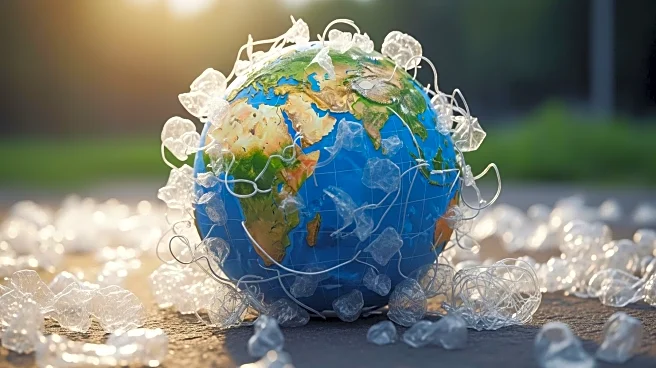What's Happening?
Recent discussions among representatives from over 180 countries aimed at establishing a global UN plastics treaty have ended without reaching an agreement. The treaty was anticipated to address the escalating issue of plastic pollution, a significant environmental threat. Climate and environment reporter Petra Stock highlighted Australia's growing plastic waste problem, emphasizing the need for effective measures to combat this challenge. The failure to secure a treaty underscores the complexities involved in international negotiations on environmental issues, as countries struggle to align on strategies to reduce plastic waste.
Why It's Important?
The inability to finalize a global plastics treaty has significant implications for environmental policy and efforts to combat pollution. Plastic waste is a major contributor to environmental degradation, affecting ecosystems and human health. Without a unified international approach, individual countries may face challenges in implementing effective waste management strategies. This development could hinder progress in reducing plastic pollution, impacting industries reliant on plastic production and disposal. The lack of agreement also highlights the difficulties in achieving global consensus on environmental issues, which could delay necessary actions to address climate change and pollution.
What's Next?
Following the unsuccessful treaty negotiations, countries may need to explore alternative approaches to tackle plastic pollution. This could involve regional agreements or national policies aimed at reducing plastic waste. Environmental groups and policymakers are likely to continue advocating for stronger measures and international cooperation. The focus may shift to innovative solutions and technologies to manage plastic waste more effectively. Additionally, public awareness campaigns could play a crucial role in driving consumer behavior towards sustainable practices, potentially influencing industry standards and government regulations.
Beyond the Headlines
The failure to reach a global plastics treaty raises ethical and cultural questions about responsibility and accountability in environmental stewardship. It underscores the need for a shift in societal attitudes towards consumption and waste management. Long-term, this could lead to increased pressure on industries to adopt sustainable practices and on governments to enforce stricter regulations. The situation also highlights the importance of collaborative efforts across borders to address global environmental challenges, emphasizing the interconnectedness of ecological systems and the shared responsibility of nations.










